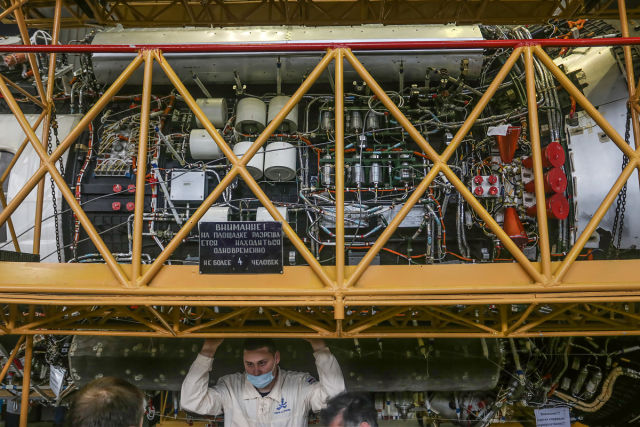Its launch is scheduled for July 15
MOSCOW, May 12. /TASS/. The multifunctional laboratory module Nauka, which is scheduled to launch to the ISS in the summer of 2021, has successfully passed vacuum tests. This is stated in the message of Roscosmos, distributed on Wednesday.
"At the Baikonur cosmodrome, specialists of the S. P. Korolev Rocket and Space Corporation Energia (part of the State Corporation Roscosmos") pneumovacuum tests of the laboratory module "Nauka" have been completed regularly, " the report says.
As specified in Roscosmos, during the tests, which lasted about a month, the tightness of the hull, hatches and docking units, as well as the functioning of the pneumatic hydraulic system, propulsion system, and external hydraulic systems were checked. At the moment, preparations are being made for the final installation of the ERA manipulator, and then the circuit of the thermal management system will be refueled. After that, work will continue on the installation of micrometeorite protection.
Earlier, Roscosmos noted that after the pneumovacuum tests, the material and technical acceptance procedure for the Nauka module by the Energia Rocket and Space Corporation will take place. Within 54 days, the product will be prepared for launch: install solar panels, place the delivered goods. There will also be a control weighing of the module, assembly of the space head, refueling of the module tanks with fuel components and general assembly of the rocket.
The multifunctional laboratory module "Science" is designed for the implementation of the Russian program of scientific and applied research and experiments. After the commissioning of the "Science", the Russian segment will receive additional volumes for the arrangement of workplaces and cargo storage, the placement of equipment for the regeneration of water and oxygen. With Nauka, Russian cosmonauts should get a second toilet, a cabin for a third crew member, as well as a European ERA manipulator, which will allow them to perform a number of tasks without going into outer space. So far, the module is scheduled to launch on July 15.

